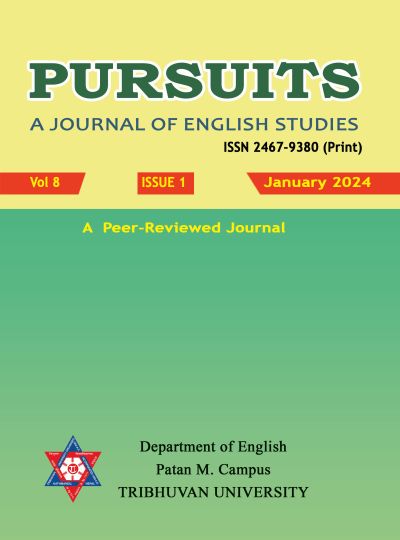A Journey towards Self-discovery in Joseph Conrad’s The Heart of Darkness
DOI:
https://doi.org/10.3126/pursuits.v8i1.65344Keywords:
literal-figurative meanings, self-discovery, moral judgmentAbstract
The research paper sheds light on the self-discovery of Charles Marlow and considers it as a journey of initiation which extends itself to the new unending existence. There is no time and space in it, which remains vacant for advent of a new life. It examines the pursuit of Kurtz, the head of the inner station. This study objectifies both inner and outer stations for a new experiment. This is seen as a self-discovery of one’s inner spirit. These pictures, in the novella, adopt a method depicting both figurative and literal meanings. It is obviously a pursuit of self-discovery focused on the discovery of Africa and the impact of imperialism. It develops two stations are one the people and another their colonial rule. Basically, Marlow’s journey appears to be as if Joseph Conrad presents himself as a cloak of true journey. The paper portrays the physical journey in the Heart of Darkness in which the inner and outer realities are complementary to each another. The inner journey has a profound effect on unconscious thoughts and actions. It shows Marlow’s capability to differentiate between good and evil since he observes how progress implies the moral sense of judgment.




